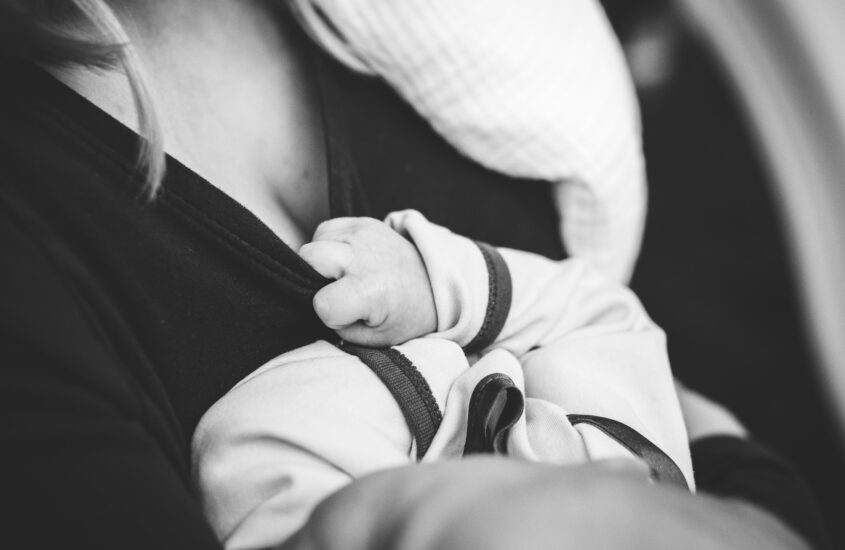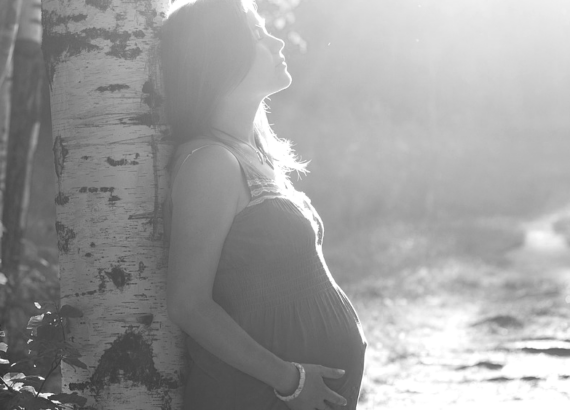What is Postpartum Anxiety?

Motherhood makes us warriors, and it does so by arming us with worry. Even before the baby arrives, many women start to feel that itch to get the nest ready. Supplies are purchased—huge stockpiles of diapers and more clothes than could ever be necessary. New parents have a thousand things to worry about, and all those worries are a natural defense mechanism to keep our babies safe.
But what happens when those worries spiral out of control? When, instead of serving a purpose, they lead us down the rabbit hole from one nightmare scenario to another? Robbing us of sleep, keeping us on edge, ready to pop with anger or frustration at the slightest setback. When our anxieties pile up so high we can’t function properly anymore, it could be a sign of postpartum anxiety.
In this article, we’ll explore postpartum anxiety and how to recognize the signs.
Understanding Postpartum Anxiety
While we often hear talk about postpartum depression, there’s rather less awareness when it comes to postpartum anxiety. Women are more likely to suffer from anxiety than men, and it’s estimated by some studies that between 11% and 21% of all mothers may experience postpartum anxiety. While it sometimes goes hand-in-hand with postpartum depression, the two are distinct. Additionally, it may regularly go undiagnosed because new parents are generally prone to worry.
Postpartum anxiety differs from the standard experience of new parents in the severity and intensity of anxiety. Many of the fears may also qualify as irrational or paranoid in nature.

A common example is a mother who’s convinced her baby has been switched in the hospital or believes someone may be trying to harm either themselves or the baby.
With postpartum anxiety, fears are:
- Persistent
- Pervasive
- Irrational
- Disruptive
- Intrusive
What Causes Postpartum Anxiety?
While it’s not well understood what precisely causes postpartum anxiety, several risk factors correlate with its emergence, including a family history of anxiety, depression, or postpartum depression. Some families seem to be more prone to postpartum depression and postpartum anxiety than others.
In addition, a personal history of anxiety or physical stressors like lack of sleep or changes in hormones may play a contributing role.
Physical Symptoms
As an anxiety disorder, postpartum anxiety comes with a host of physical symptoms indicative of a stress response in the body. The body’s fight-or-flight instinct comes online in response to the heightened sense of danger. Hypervigilance and hyper-awareness are survival mechanisms humans evolved over generations in order to endure harsh wilderness conditions. Those responses live in our DNA and can’t always be turned off.
Physical symptoms of postpartum anxiety include:
- Inability to focus
- Increased heart rate
- Insomnia
- Loss of appetite
- Nausea
- Restlessness
- Shortness of breath

Emotional Symptoms
Many of the mental and emotional symptoms associated with postpartum anxiety are related to intrusive thoughts. Someone suffering from postpartum anxiety may worry excessively about the safety of the baby whenever they are out of sight. Instead of being able to rest while the baby is sleeping, they feel the need to get up and check frequently to make sure they’re still breathing. They may experience difficulty handing the baby to people they trust, such as their partner, parents, in-laws, or siblings.
In many cases, their fears may be related to specific scenarios, but it’s just as likely that they may struggle with irrational worries that they can’t put into words effectively.
Signs of emotional distress related to postpartum anxiety include:

- Controlling behaviors
- Desire to isolate
- Emotional dysregulation
- Inability to focus
- Irrational fears
- Racing thoughts
- Social anxiety
- Obsessive-compulsive behaviors
Schedule a Consultation
If you’re currently struggling with postpartum anxiety, please reach out to schedule a consultation. Our guide on 5 ways to deal with postpartum anxiety can offer helpful strategies. Postpartum anxiety can persist for some time but can be managed and treated. You don’t have to fight this battle on your own.

Katie Fontana: Postpartum Depression Counselor & Postpartum Anxiety Therapist
- Specialties: postpartum depression and anxiety, ADHD, neurodivergent diagnoses, parenting, depression, life transitions, women’s issues, LGBTQ+

Liz Rougeau: Perinatal Mental Health Counselor & Postpartum Therapist
- Specialties: postpartum depression and anxiety, parenting, life transitions, self-esteem, women’s issues




